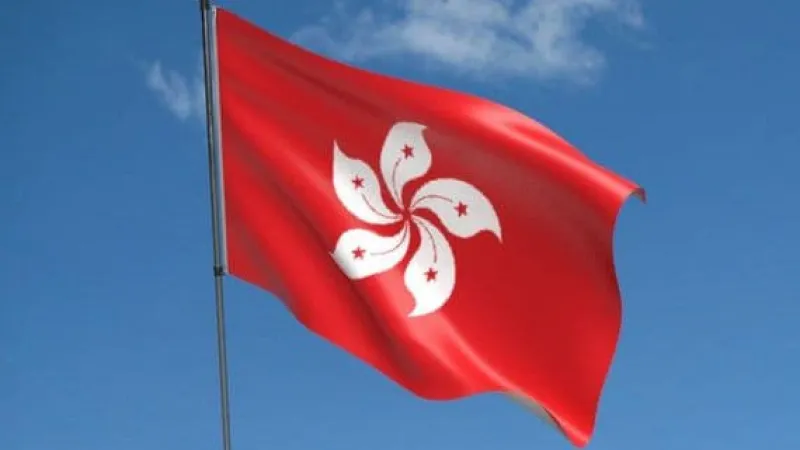Hong Kong Arbitration Week 2025: International Arbitration in Times of Trade Wars and Other Geopolitical Challenges
October 22, 2025
On the first day of the 2025 Hong Kong Arbitration Week, Baker McKenzie and Control Risks jointly hosted a panel discussion on International Arbitration in Times of Trade Wars and Geopolitical Challenges. The event featured a diverse panel of experts providing their views from private practice, service provider and in-house perspectives on how geopolitical challenges affect commercial parties and their dispute resolution options. James Ng (Baker McKenzie) moderated the panel, comprising Jane Liu (JCET Group), Jessica Pyman (Control Risks), Edward Hart (Control Risks) and Philipp Hanusch (Baker McKenzie).
This post summarizes the key points of the discussion, highlighting the complexities and strategies involved in navigating dispute resolution in turbulent times.
The Big Picture: Current Geopolitical Challenges
The discussions began with an overview of the current landscape of trade wars and geopolitical challenges. Ms. Pyman emphasized that clients are now often caught in the crosshairs of trade wars, particularly between China and the US. This has resulted in supply chain disruptions and technology controls, given China’s dominance in green technology and industrial base. The increasing use of trade controls and sanctions in various countries further complicates matters, leading to disputes and conflicts.
Drawing from her experience in the semiconductor industry, Ms. Liu explained that while Chinese companies have been relatively insulated from rare earth restrictions, they have been significantly affected by US government measures. The introduction of the “BIS Affiliate Rule” by the US, which imposes corresponding restrictions on certain affiliates to entities on the BIS Entity List, has caused widespread disruptions by potentially halting legitimate business operations.
Ms. Pyman highlighted the challenges faced by multinational corporations (MNCs) with a presence in China. They must navigate the complexities of complying with US sanctions while adhering to Chinese export controls. The bifurcation of supply chains and the high cost of doing business in such an environment remain significant concerns. MNCs, particularly those in healthcare and manufacturing, are heavily invested in China and cannot easily leave due to the technological capabilities and speed of manufacturing available there.
Commercial Disputes: New Frontiers
Mr. Hanusch discussed the impact of trade restrictions on contract performance and the risk of contract enforceability in changed circumstances. More international tension leads to more trade restrictions and supply chain disruptions, which make it increasingly difficult for parties to perform their contracts. This leads inevitably to commercial disputes which parties are trying to resolve by negotiation, but if unresolved, these disputes may end up in arbitration. Arguments will arise over contractual clauses (such as force majeure and material adverse change clauses) and related legal concepts (such as frustration and supervening illegality) on which parties will seek to rely in justifying non-performance or contract termination.
Mr. Hart highlighted sabotage and cyber-attacks as emerging areas of dispute, citing incidents such as the severing of undersea cables, drone attacks and ransomware. These incidents complicate the arbitral process, particularly due to difficulties in attribution and restrictions imposed by governments on ransom payment. This leads to disputes over asset distribution in bankruptcies and class action lawsuits from customers whose data has been accessed.
Russian Sanctions and Countermeasures
Mr. Hart touched on the issue of Russia-related sanctions which have generated a large volume of disputes, fundamentally breaking commercial relationships. The force majeure hurdle remains high, especially when sanctions are not explicitly covered in contracts. Russian companies, using opaque structures, often claim unjustified breaches by Western parties. Mr. Hart noted that Control Risks plays an important role in navigating these disputes through evidence gathering and scenario planning.
Mr. Hanusch then explained how the Lugovoy Law as a Russian countermeasure to economic sanctions has affected arbitrating Russia-related disputes. While the rationale was to allow Russian courts to assume exclusive jurisdiction where a Russian party is subject to sanctions to ensure its access to justice, the courts have allowed sanctioned Russian parties to walk away from arbitration agreements regardless of the impact on their ability to arbitrate. Foreign parties have been trying to restrain Russian court proceedings in breach of arbitration agreements by obtaining anti-suit injunctions. But these injunctions often become toothless where the Russian courts grant their own anti-suit relief to restrain arbitrations and foreign anti-suit proceedings, with heavy penalties for non-compliance. To mitigate the risks, parties have been adopting Hong Kong as arbitral seat because Hong Kong is sanctions neutral. During a recent (unsuccessful) challenge of the Lugovoy law in Russia’s Constitutional Court, the Russian Arbitration Association submitted an amicus brief highlighting that sanctioned Russian parties do not face access to justice obstacles in Hong Kong arbitrations and submitting that Hong Kong has a key role to play in protecting Russian commercial interests.
Mr. Hart then highlighted the challenges of enforcing awards against Russian parties, particularly in identifying and evidencing assets. Since 2022, many Russian companies have moved assets back to Russia or obscured them through offshore entities. Creative approaches are needed to target movable assets, such as vessels and aircraft, which may need to transit through enforcement-friendly jurisdictions for servicing. At the same time, Russian parties have tried to capitalize on Russian decisions overseas, albeit the prospects of Western courts enforcing such decisions remain low.
Solutions: Strategic Choices and Risk Mitigation
Moving from challenges to solutions, the panel explored ways to mitigate risk. Ms. Pyman described how Chinese parties, especially SOEs, are pursuing debt recovery overseas with increasing vigor, often through arbitration in neutral seats like Hong Kong and Singapore. Chinese investors are increasingly using investor-State dispute settlement to bring treaty claims against foreign host governments.
Mr. Hanusch emphasized the need for businesses to have a clear understanding of their contractual rights as provisions in existing contracts may not provide the necessary protection against new geopolitical challenges. A proactive contract review can be an effective tool to mitigate the risk of disputes. Clauses should be revised to anticipate potential challenges and to allocate risks between the parties in changed circumstances. Parties should also choose stable, reliable and predictable governing laws that grant parties large contractual autonomy. This is one of the reasons why English law and Hong Kong law remain popular choices.
Ms. Liu also stressed the importance of proactive contract review to understand the protections available under the contract. Effective negotiation and strategic choices regarding the governing law and arbitration clauses are essential. For instance, choosing a neutral seat can save negotiation costs and ensure a balanced tribunal. In particular, a three-member tribunal is preferred for perceived impartiality, and arbitrators who can navigate geopolitical risks will be highly valued.
Strategic Choices: Seats, Institutions and Arbitrators
Mr. Hanusch, Ms. Pyman and Mr. Hart explored the strategic considerations in choosing arbitral seats and institutions. Neutrality, stability and judicial independence are more important than ever. Hong Kong remains a popular seat due to its common law system and its unique advantages for China-related disputes, such as direct access to the Mainland courts for interim measures. Hong Kong also remains a preferred seat for Russia-related disputes.
The choice of arbitrators becomes even more important when geopolitics is at play. Parties are advised to conduct due diligence beyond legal conflict checks to include an analysis of arbitrators’ decision-making history, financial ties and public statements (such as those on social media platforms). Parties are increasingly vetting arbitrators’ online profiles and social media for controversial views.
Ms. Liu added that in-house counsels will rely on law firms for arbitrator intelligence, and that the language of the arbitration is an important consideration for them. The strategic choice of governing law is also crucial, as powerful customers may insist on their preferred jurisdiction.
The Role of Service Providers
Ms. Pyman and Mr. Hart outlined the pivotal role service providers such as Control Risks play in helping clients navigate uncertain environments. They emphasized tools such as supply chain audits, stakeholder mapping, and scenario planning. These practices enhance pre-dispute resilience and help businesses anticipate the potential activation of regulatory frameworks like China’s Unreliable Entities List or litigation under the Anti-Foreign Sanctions Law (AFSL).
Takeaways: Safeguarding the Integrity of Arbitration
The panel discussion closed with a call to vigilance. Mr. Hanusch urged all stakeholders to safeguard party autonomy and the integrity of the arbitration process, protecting arbitrators from political interference and resisting the normalization of attacks on the process. Ms. Pyman and Mr. Hart shared the importance of involving service providers at an early stage of the dispute, as information is power for the parties involved. The consensus was that, while geopolitical risk cannot be eliminated, it must be managed through strategic planning, robust contracts, and careful selection of seats, institutions and arbitrators.
More coverage from Hong Kong Arbitration Week is available here.
You may also like











